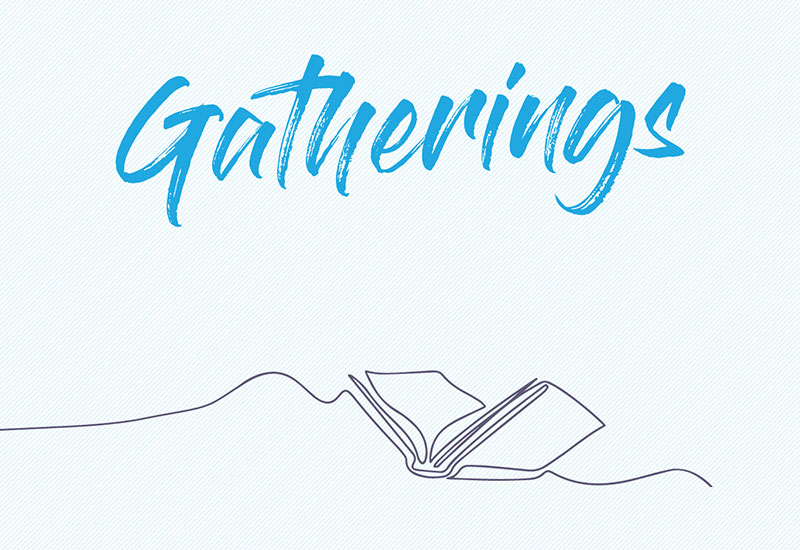November 2024
Vol. 5 No. 10 | ISSN: 2652-5836
Welcome to the penultimate issue of Gatherings for 2024. While we may be heading towards the end of the year, traditionally a time of slowing down and reflection, there’s still plenty happening and lots of news and information to share.
Our feature story this month explores the upcoming workshop “True Tracks®: Indigenous copyright and IP for editors”. Custom designed by Terri Janke and Company (an award-winning 100% Indigenous-owned law firm), the workshop features case studies and examples to improve your understanding. It also provides guidelines and protocols for respectfully working with Indigenous knowledge and knowledge holders throughout the editing and publication process. The Standing Committee for Professional Development (SCPD) shares more on the workshop in this issue.
If boosting productivity or automating some of the more, shall we say, tedious aspects of editing are goals high on your list for 2025, then you don’t want to miss our upcoming macros workshops, for PC and Mac. In this issue, you can read more about the workshops that one IPEd member called the “most useful of any IPEd workshop I have attended”.
Earlier this year we welcomed Pania Tahau-Hodges from Huia Publishers to deliver a workshop on editing Māori-language text in English-language publications. This month, Editors Aotearoa New Zealand branch member Sylvia Bauer provides a fantastic review of Pania’s workshop with plenty of thoughtful insights and great resources.
Julie Ganner AE is back with another excellent editing for accessibility resource, this time on writing and editing image descriptions (alt text). One to bookmark alongside Books without barriers.
Entries are closing soon for the 2025 IPEd Student Prize. This wonderful prize is open to members and non-members, so do share with any editing students you know! As 2024 Student Prize winner Despina Cook said, “We all have this ‘oh I’m not good enough’ thought always hanging around…But [the Student Prize] validated why I was doing it. And it encouraged me to keep going.”
Congratulations to the 44 Accredited Editors (AEs) who successfully renewed their accreditation earlier this year. Read more about renewals from the Accreditation Board in this issue.
Also this month, we have some great event reports, including Linda Nix AE’s recent business planning event which you can now purchase, and updates from several branches.
Finally, if you’re looking for a catchy song to add to your favourites playlist, you can’t go past “Use the Style Manual” from the team at the Australian Government Style manual.
Happy reading – and listening!
Events and workshops
- Business accounting for Aotearoa editors
- Date: Tuesday 12 November 2024
- Editing tools to boost your productivity
- Date: Thursday 14 November 2024
- Networking lunch in Moss Vale
- Date: Friday 15 November 2024
- Macros for Mac (two-part workshop), with Paul Beverley and Jennifer Yankopolus
- Date: Thursday 7 November and Thursday 21 November 2024
- True Tracks – Indigenous copyright and IP for editors, with Terry Janke and Co
- Date: Tuesday 26 November 2024
- Macros for PC (two-part workshop), with Paul Beverley and Jennifer Yankopolus
- Date: Wednesday 27 November and Wednesday 4 December 24
- Sunshine Coast Editors Group gathering
- Date: Saturday 30 November 2024
- Editing narrative nonfiction with Nadine Davidoff
- Date: Friday 22 November 2024
- Editors NSW December dinner
- Date: Tuesday 3 December 2024
Don’t miss out on these forthcoming workshops. Bookings will open closer to the event, but pop the dates in your diary today!
- Diversity in the Australian publishing industry: current research and how we can support under-represented editors
Date: Tuesday 19 November 2024 - Editors Victoria: Christmas with author Graeme Simsion
Date: Wednesday 4 December - Editors Queensland end-of-year dinner
Date: Friday 6 December 2024 - Intro to Indexing, with Sherrey Quinn
Date: 11 December 2024
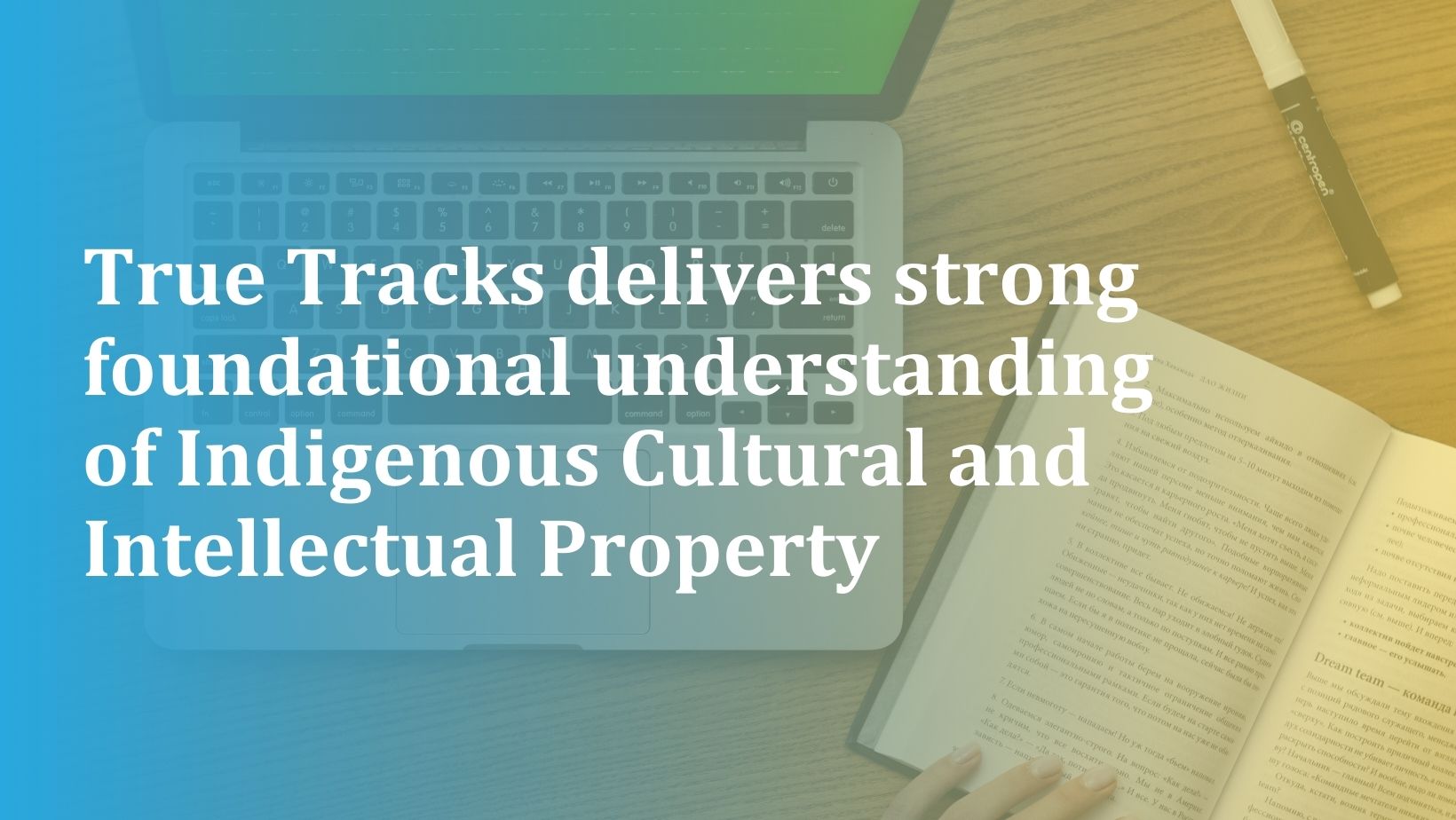
Earlier this year IPEd approached Copyright Australia and legal firm Terri Janke and Company (TJC) to work together in developing editing-focused training packages. We are delighted that the first of those – “True Tracks®: Indigenous copyright and IP for editors” – is now available.
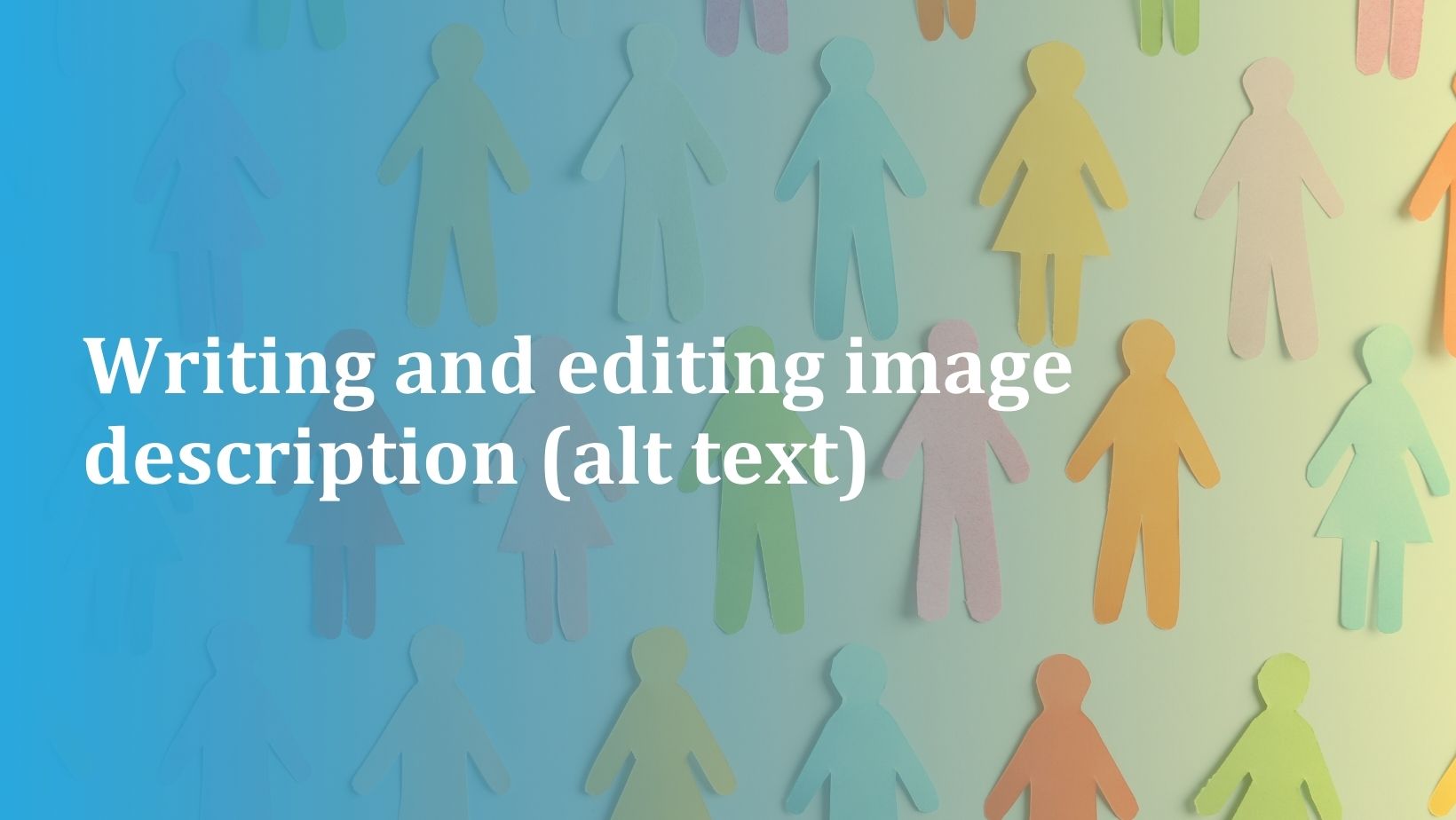
An image description tells the user what an image is of. Without it, someone using a screen reader will just hear “image”, “null” or “void” – or nothing at all – in place of the illustration, depending on the system they are using.
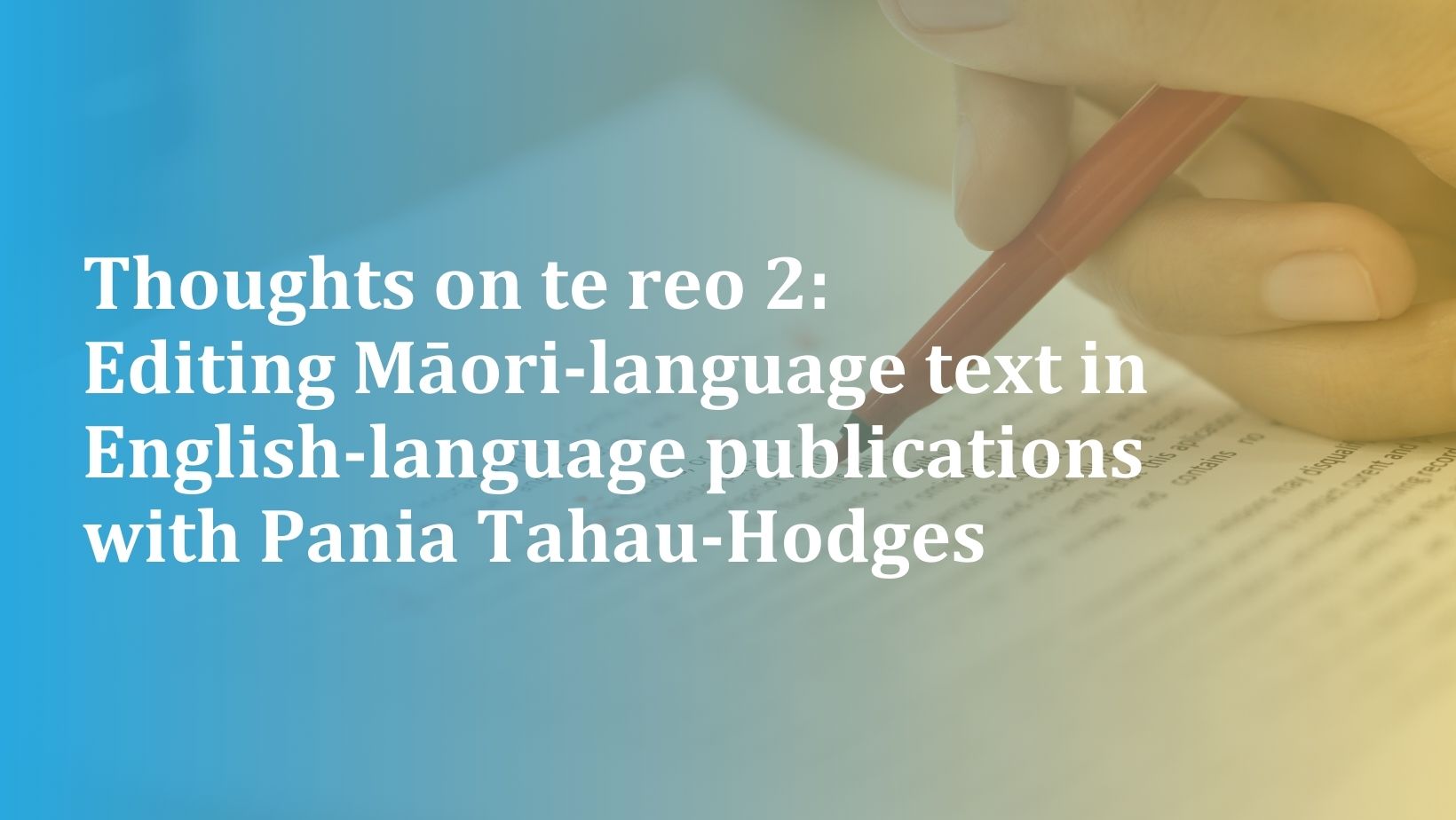
The holistic definition of Māori knowledge alerts us that editing te reo Māori, like any language, is about much more than crossing Ts, dotting Is and placing macrons correctly.
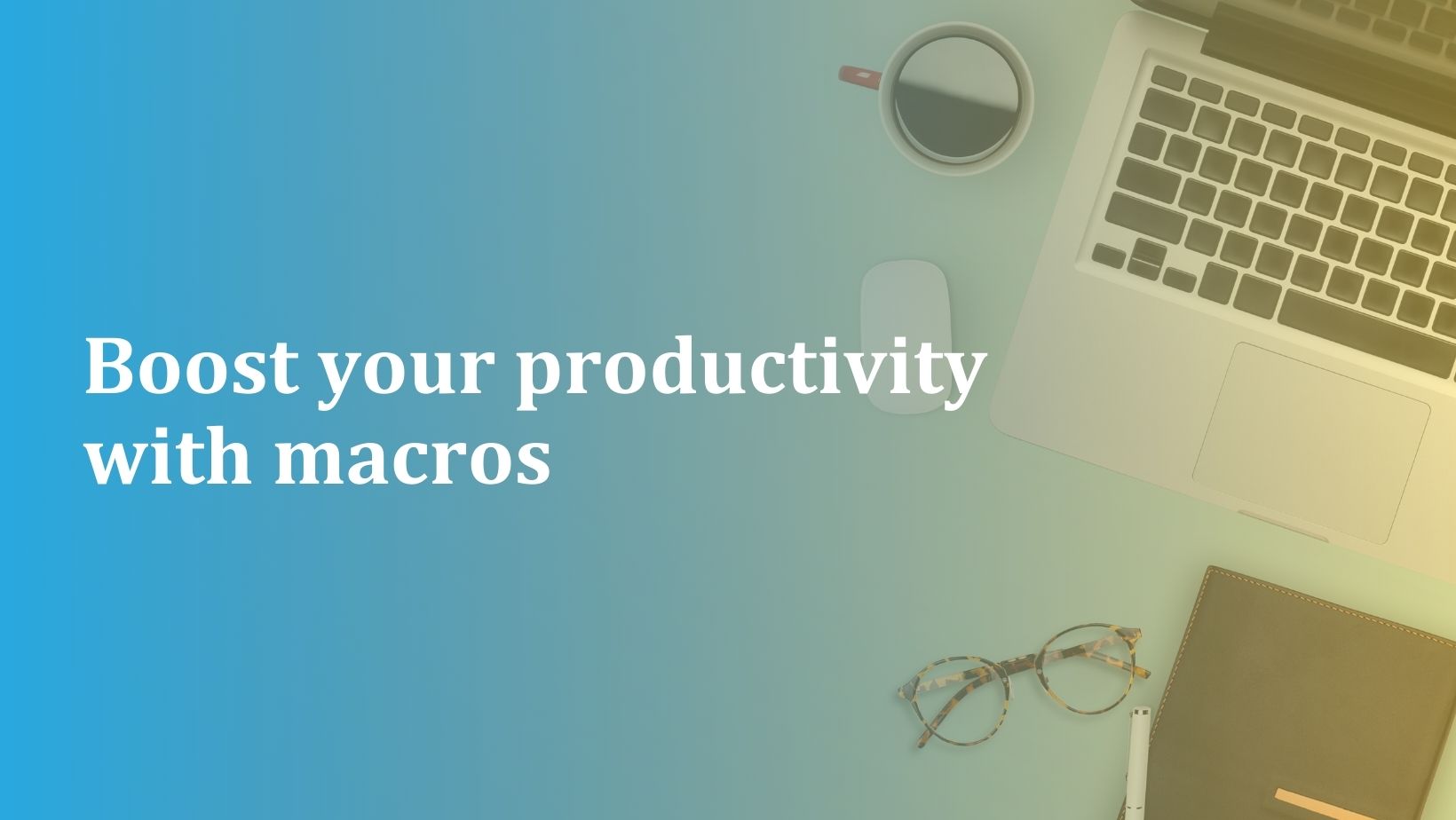
Ever wished there were some simple, seamless tricks that would speed up your editing? Ever wished you could stay in the flow of your copyediting while tackling routine fixes, standardising and checks? Using macros – and using them smartly – could be the answer.
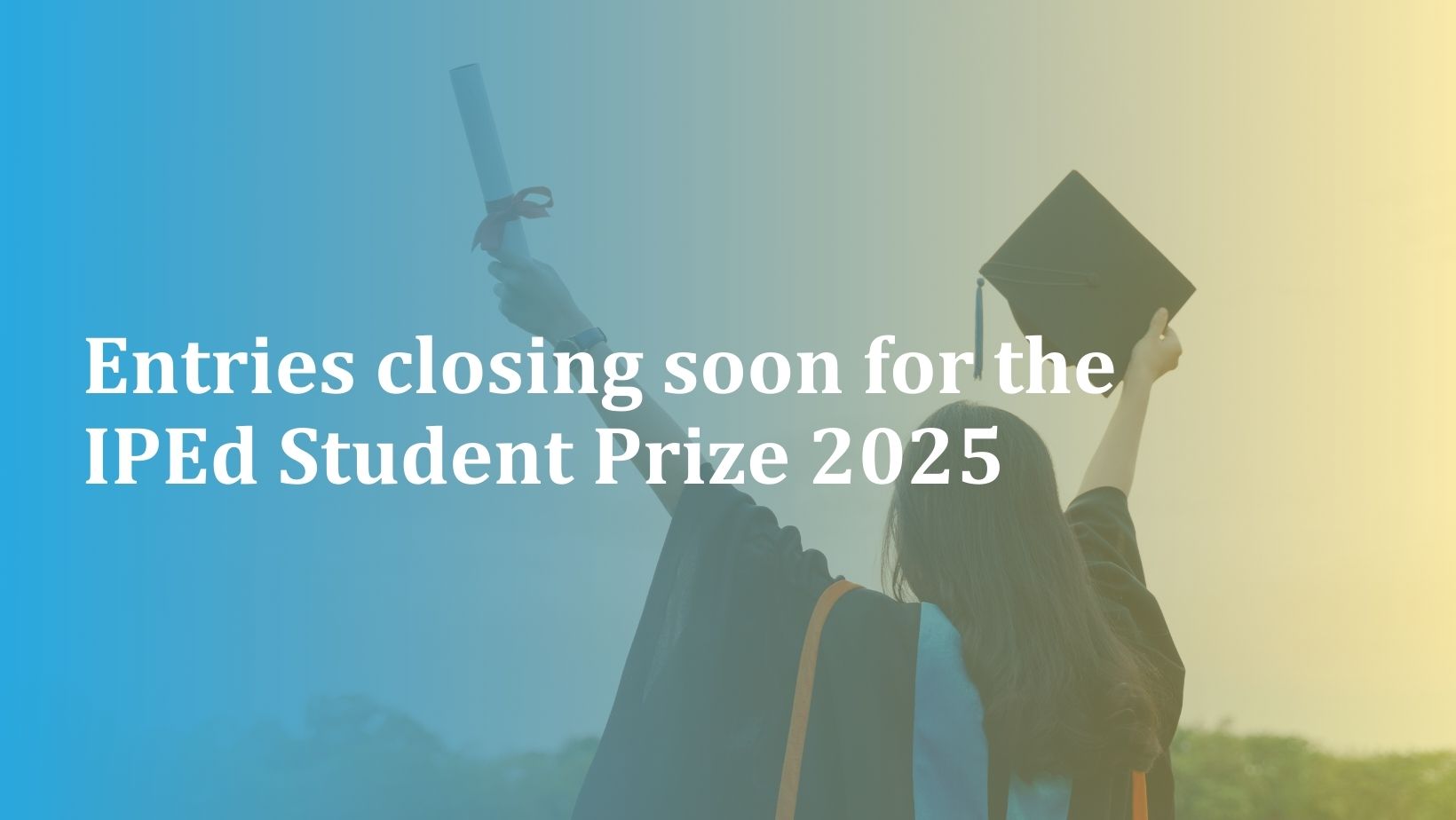
Entries close on Monday 11 November for the 2025 IPEd Student Prize, so if you are a student editor, get your entries in now!

IPEd members can access a 15% discount for an Macquarie dictionary individual subscription.
Find the discount code in the member portal.
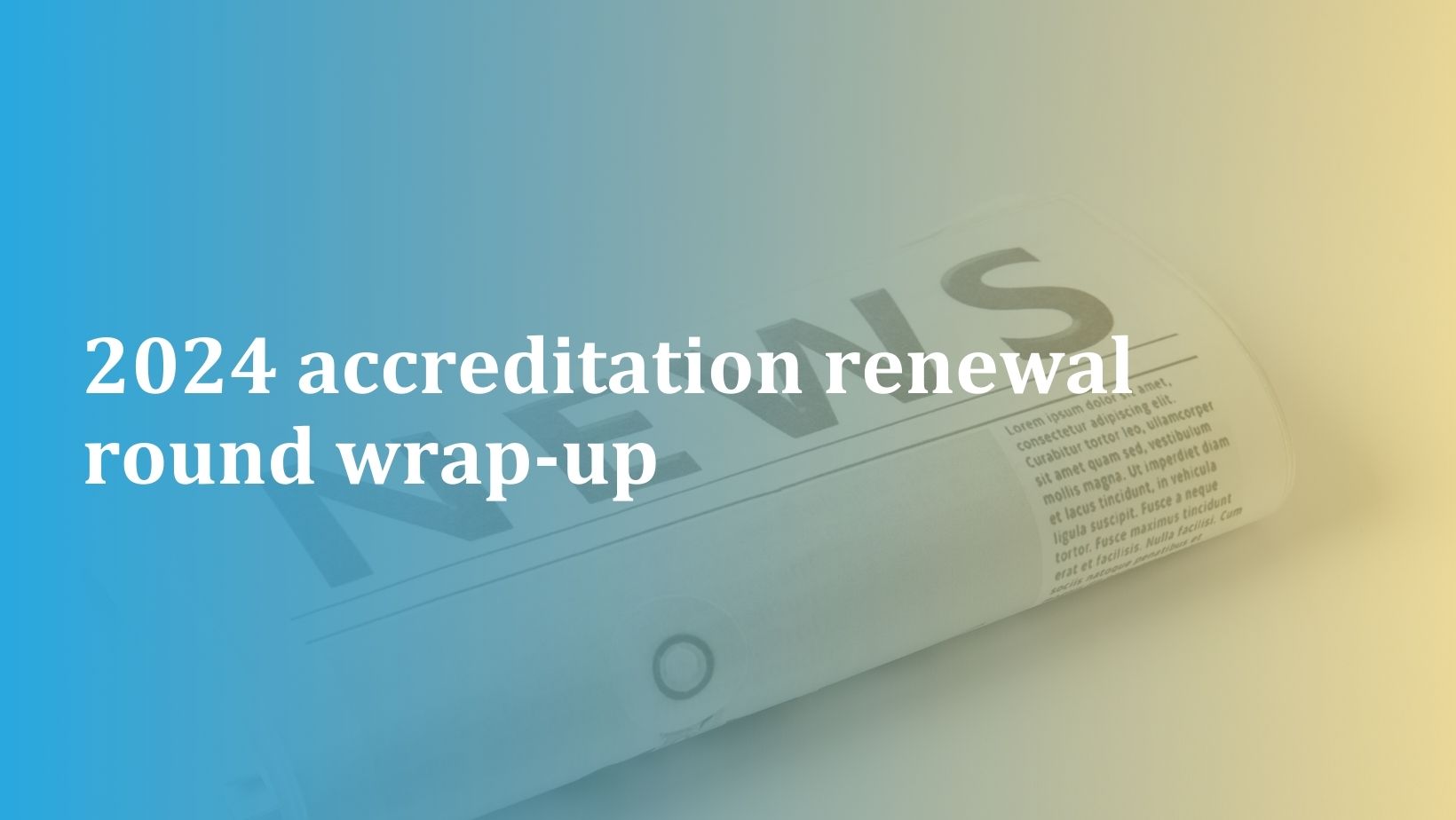
This year’s accreditation renewal round saw 44 Accredited Editors (AEs) successfully renew their accreditation.
The Accreditation Board congratulates all the renewing AEs on their commitment to their work, their professional development and the editing profession.
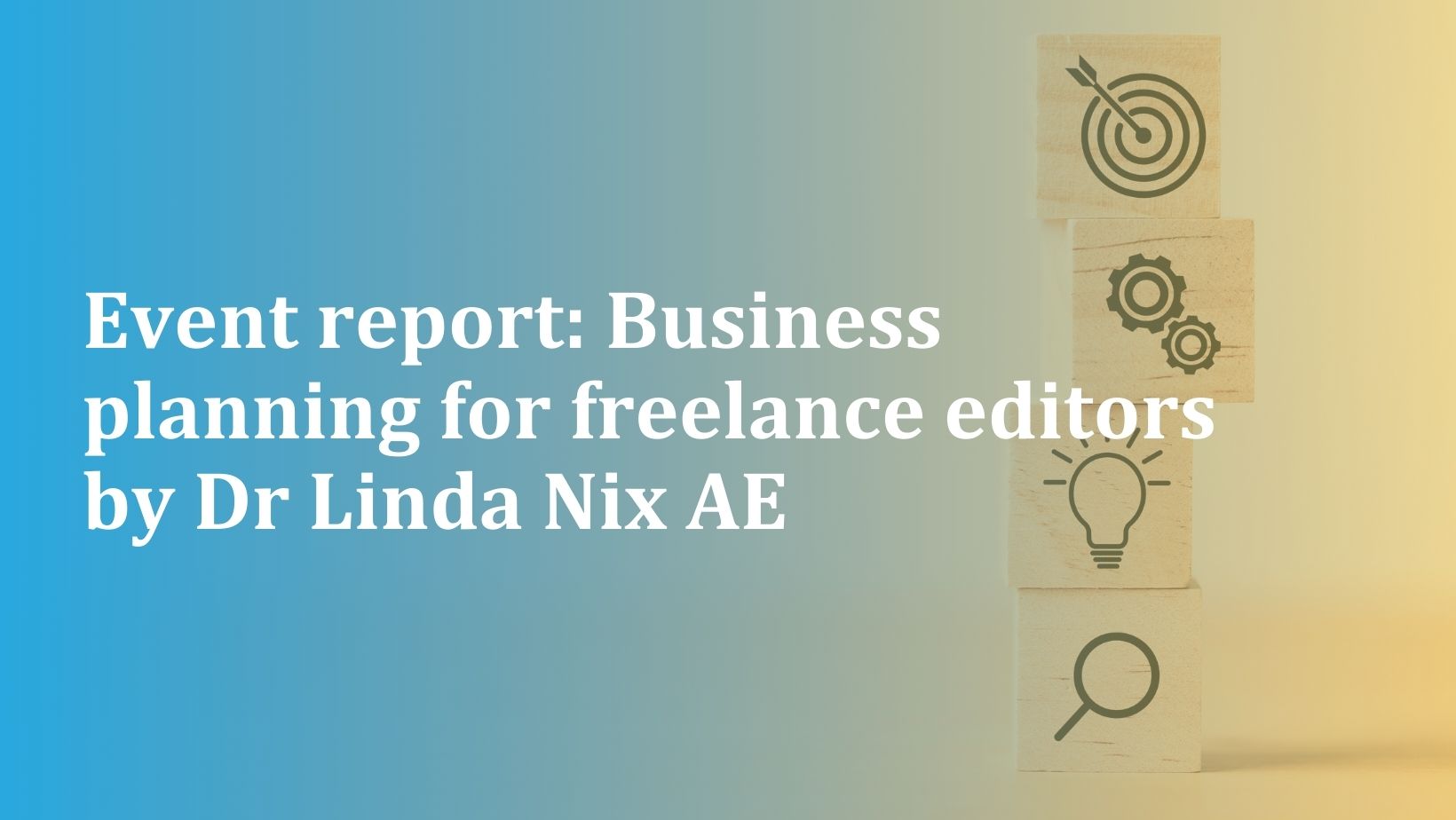
Linda discussed the essential role of business planning in the freelance editing profession, emphasising that developing a well-thought-out business plan (and reassessing it regularly) is key to long-term success.
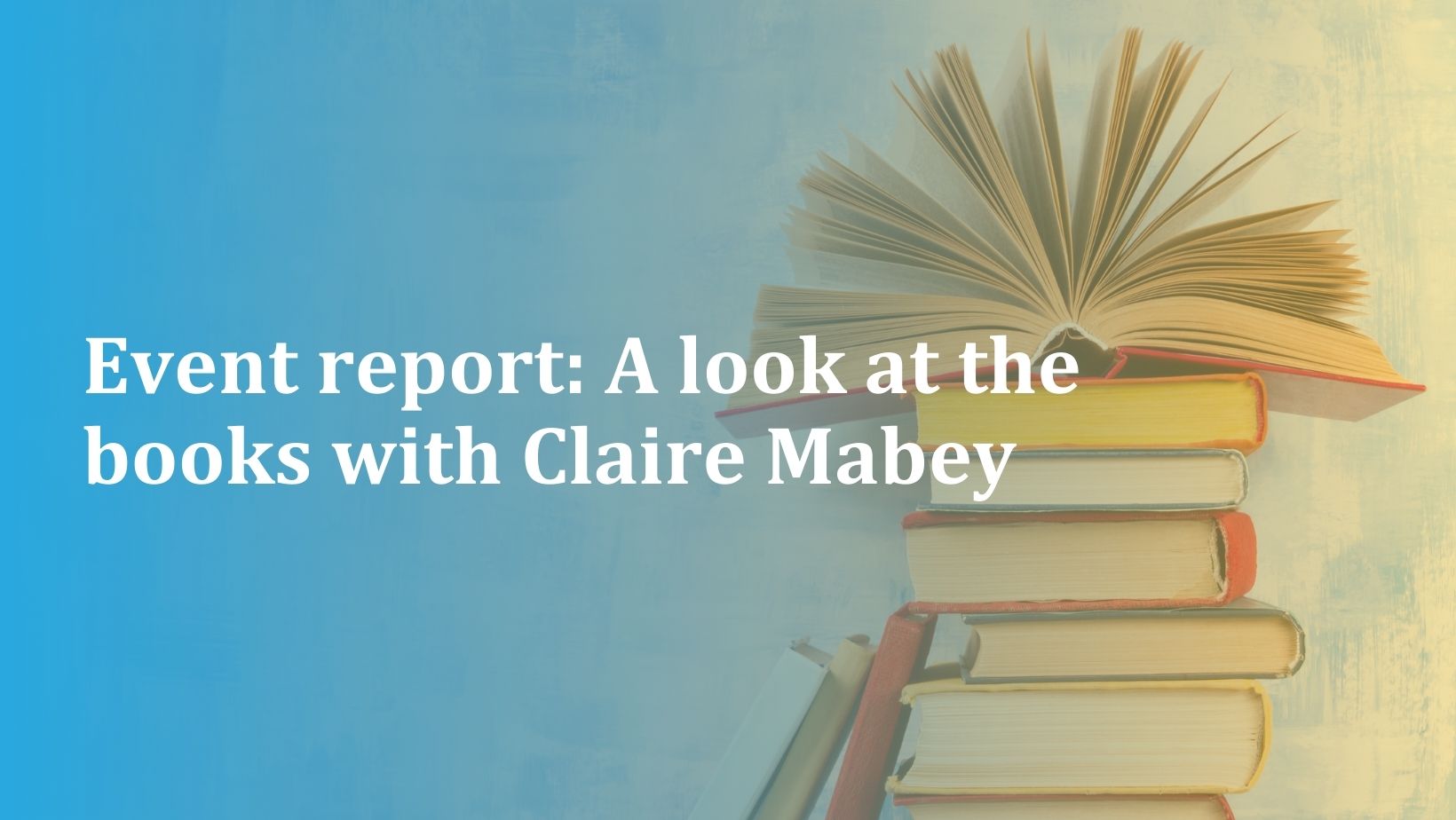
Claire joined us as our guest speaker following our Editors ANZ annual branch meeting in September. Her talk, “A look at the books”, walked us through her editing, writing, publishing and writers festival career. And she shared her views on the current state of the Aotearoa book festival scene and publishing scene more broadly.
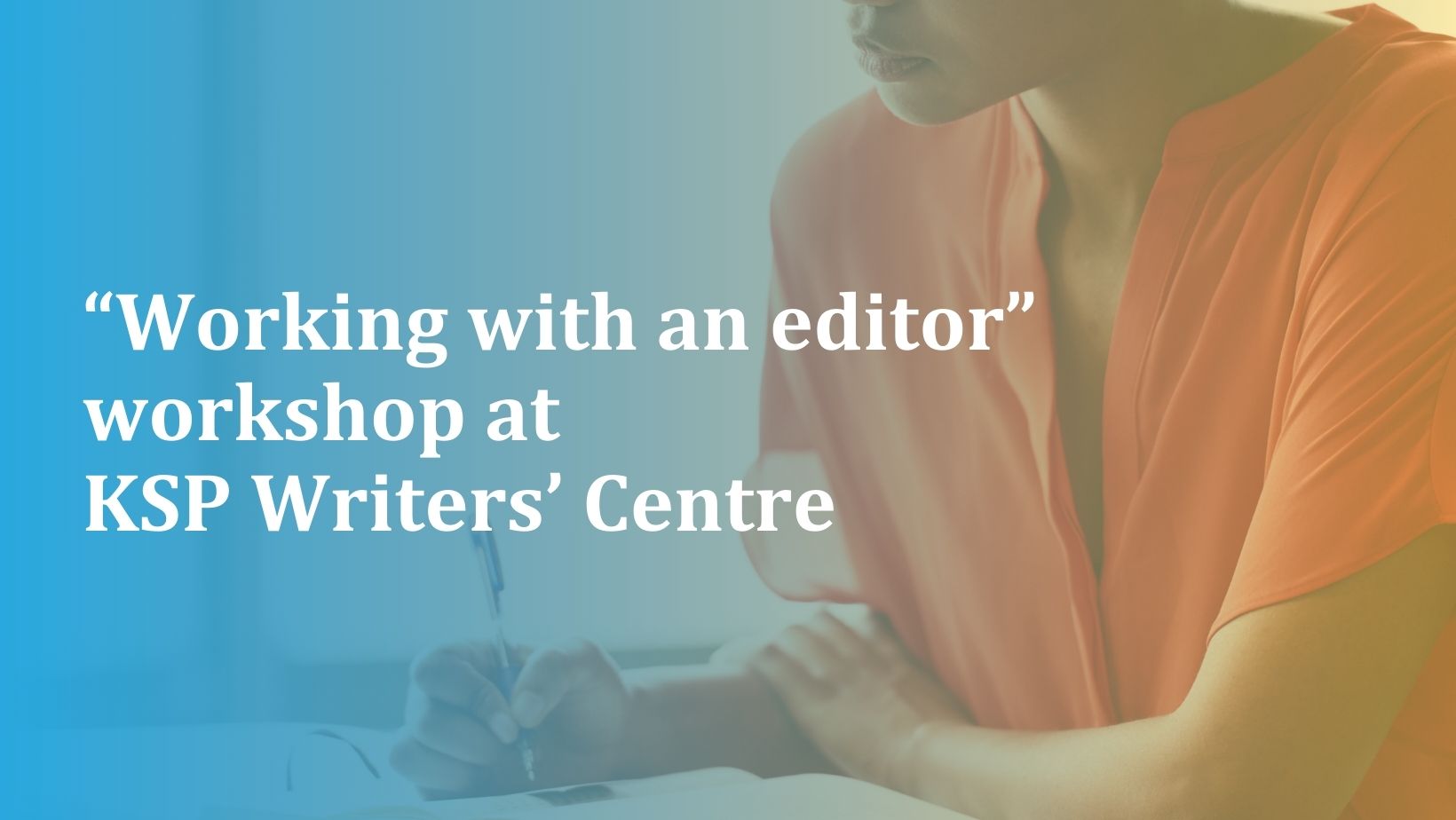
Demystifying the editorial process for writers, the workshop also provided an opportunity for Editors WA to promote IPEd, the Editors Directory and what IPEd can offer those seeking to work with an editor.
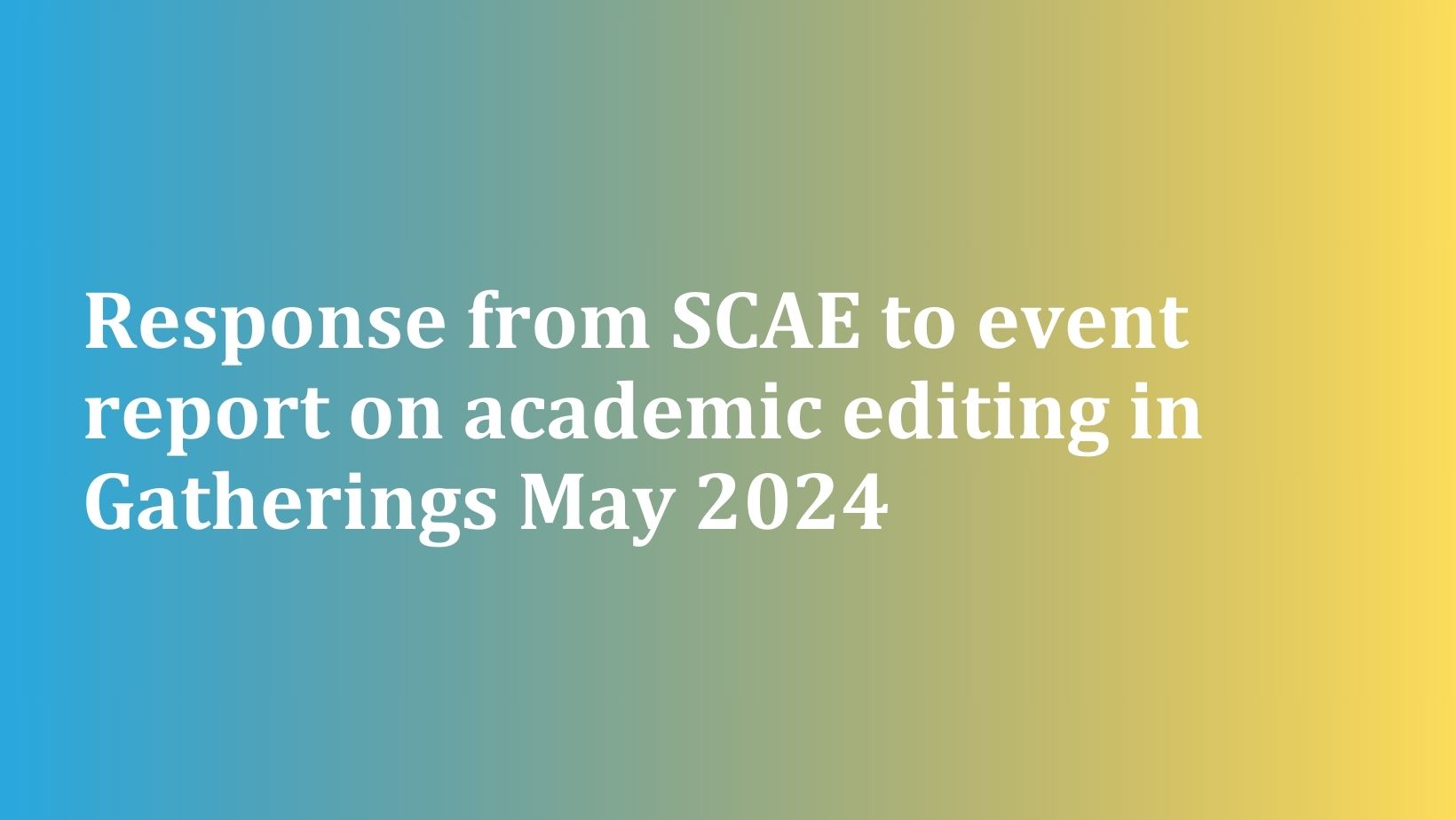
Academic editing is an important source of work for IPEd members. In IPEd’s Editors Directory of approximately 340 professional members, over 200 editors indicate they are available to edit academic theses or articles.
Links and tips and industry news
Does generative AI and AI for book editing spell the end of professional editors?
IPEd member Dr Erin O’Dwyer co-authored this piece on generative AI, exploring the use of tools like ChatGPT and the value an editor brings to a project.
“A human editor brings a critical eye. A human editor asks questions, reads between the lines, spots gaps, and challenges you. A human editor asks questions, like, Why are you writing this? For whom? And why now?”
Hachette internship program
Applications for Hachette Australia’s annual paid internship program are now open.
Keen to learn more? Full details on the internship can be found on the Hachette website.
For more details, watch the 2022 virtual guide and Inside the Publisher Q&A or read the frequently asked questions.
Apply via the Hachette Internship SEEK ad by COB Wednesday 4 December 2024.
Editors Canada’s French language conference
Every two years, Editors Canada organises a one-day conference with content specifically geared toward French-speaking editors.
The event, which is held entirely in French, is a unique opportunity for professional development and networking in a friendly atmosphere.
Learn more about the Congrès des langagiers et langagières.
Setting boundaries: three essential strategies
We’ve all received one of those emails. An offer that falls short of expectations or that asks way too much. When it arrives in your inbox you want to say no, but somehow you end up saying yes.
As ArtsHub explains, setting boundaries is not only helpful when it comes to your workload, it’s also beneficial for your mental health.

